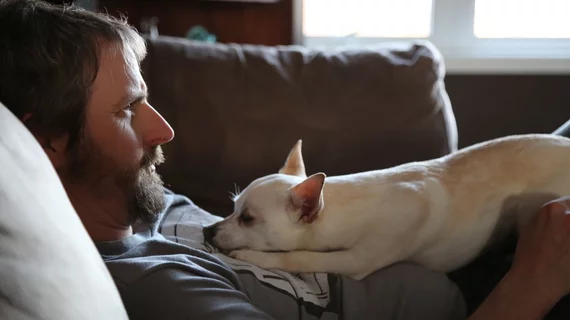These are strange days indeed for radiologists whose normal daily routines revolve around screening exams and other nonurgent imaging studies. What to do with the downtime that doesn’t feel like shirking one’s duties?
In commentary posted April 15 in Academic Radiology, three experienced rads offer four solid suggestions. Their aim: to help their peers navigate the work doldrums brought on by the coronavirus crisis.
David Fessell, MD, and Kim Garver, MD, of the University of Michigan, along with Frank Lexa, MD, MBA, of the ACR’s Radiology Leadership Institute aim their tips at radiologists.
However, the activities are broad enough to apply to anyone who’s missing the feeling of making a meaningful contribution to a formerly frenetic workplace.
1. Support others. Paradoxically, social distancing can present new opportunities to draw closer to spouses, family members and other VIPs in one’s life. Fessell, Garver and Lexa write specifically of targeted phone time, but their advice would apply to Facetime, Zoom and other digital face-to-face communications too.
“Preparing oneself before such calls—by centering and calming ourselves, bringing some positive or encouraging news (dramatically fewer cases in China, progress on a vaccine, etc.)—can be helpful,” they write. “By providing a listening ear, a bit of hope and a connection to meaning and purpose, we can deepen the family bonds that help sustain us all.”
Meanwhile, local communities across the country are in dire need of donated food, blood and, yes, dollars. “Putting a reminder on one’s calendar to assess which agencies have needs and to donate to them can help provide a source of continual contribution,” the authors point out. “Hosting zoom coffee chats, happy hours and birthday parties with family, friends, and colleagues helps all engender feelings of connection and a sense of belonging. Such events can be an occasion for sharing coping strategies, jokes and gratitude, as well as concerns and fears.”
2. Tackle other tasks. While normal work duties are on hold, why not take on those things on your to-do list you’ve been putting off? “Have you been planning to learn more about AI or a new development in your [profession]? It may feel difficult at first to try and focus on such work, given all that is happening in the world,” the authors acknowledge. However, “it can also be very satisfying to have a meaningful project on which to focus.”
Further, the particulars of your work may be unsettled right now, but it’s reasonable to expect a post-COVID rush to catch up in one way or another. “Doing all that one can do now is prudent and helpful from a psychological standpoint as well,” the authors note. “Beginning to think, at least in broad terms, about potential scenarios and the associated business plan needed for navigating them, may also be helpful.”
3. Take care of yourself. Upon graduating from medical school, many new physicians pledged to attend to their own health, wellbeing and abilities in order to provide care of the highest standard, the authors point out. Add and service after care, and the pledge applies to all healthcare workers.
“If we are rundown and do not have energy, we cannot help others,” the authors point out. “Positive daily routines can include setting goals, exercising, maintaining a healthy diet and getting enough sleep, as well as connecting with others,” they add.
Under this section Fessell, Garver and Lexa additionally note that the current crisis can hit healthcare workers now feeling stuck at home, whether working from there or not, with particular force. After all, daily life for many involves interactions with patients as well as medical professionals.
“Such feelings can include inadequacy, uselessness, guilt for not doing more ‘clinically relevant’ activities, perhaps even mixed with occasional feelings of relief that one is not currently on the ‘front lines’” of healthcare provision, the authors write. “Naming our feelings, allowing them to be present and letting them flow through us helps to complete the natural process of navigating traumatic events.” Also recommending daily journaling, supportive online conversations and other measures, the authors underscore that such self-care—including that which sees to emotional and mental health—is essential. “Self-care is not self-indulgent,” they write. On the contrary, it “allows us to support those who rely on us.”
4. Develop yourself personally. Downtime can be a gift for those who’ve thought about—but haven’t progressed toward—building new skills or taking up new interests, the authors assert. The downtime brought on by the pandemic “can be a time to develop new hobbies such as learning to play the piano or another instrument, drawing, painting, organizing family photos or documenting a family history,” the authors write. “Perhaps this is a gift of time for cleaning or organizing those often-neglected areas like basements and garages. Such activities are defined, doable and help build a sense of accomplishment and agency.”
While the COVID-19 crisis is thwarting many from contributing in familiar ways, Fessell, Garner and Lexa conclude, much can still be done for one’s family, community and self.
“Focusing on what we can do and making progress will serve us well,” they write. “We cannot know what the future will bring, but we can do our best to make progress—day by day, breath by breath. We are in this together. We are navigating this challenge, and we will thrive again.”

